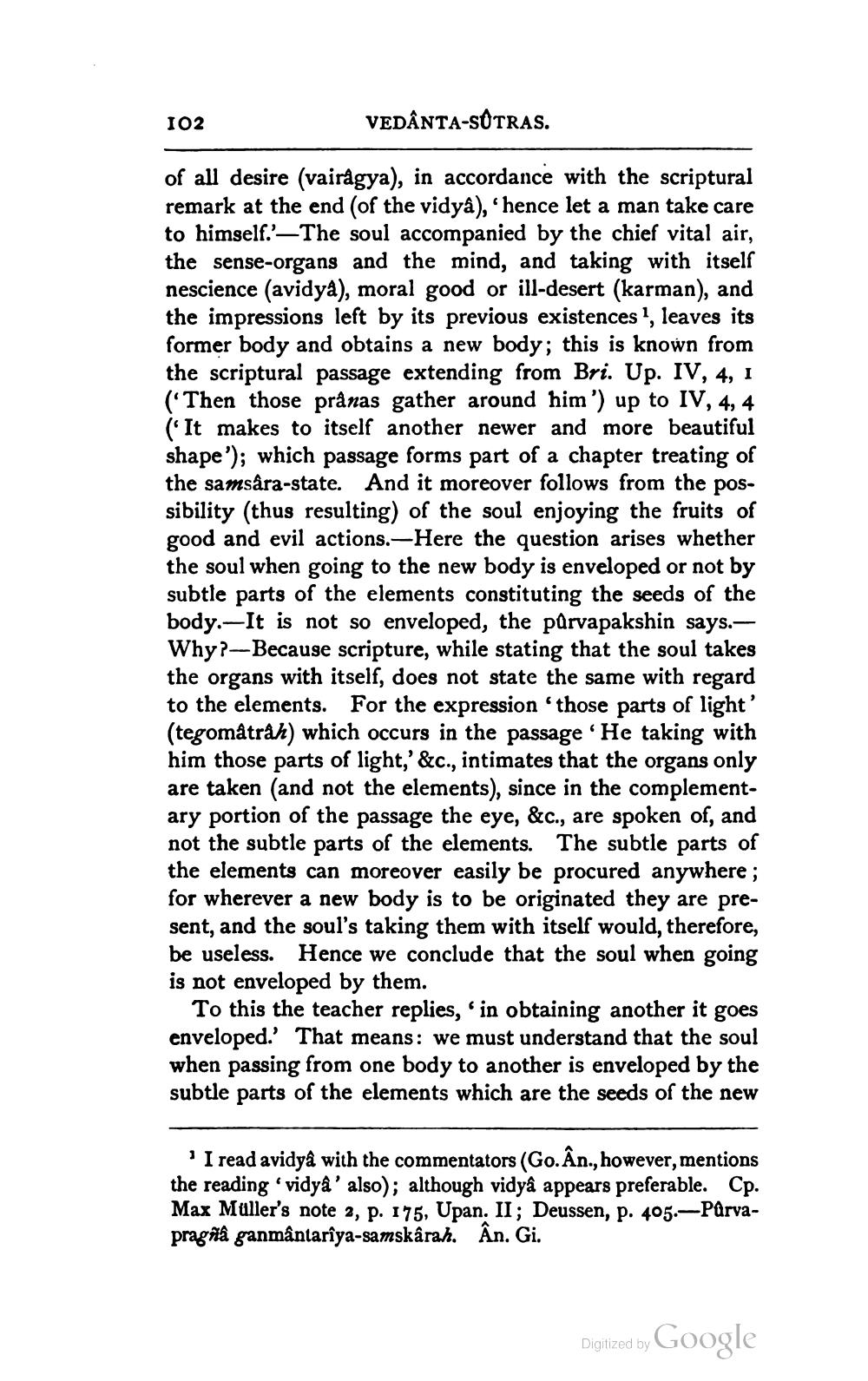________________
102
VEDÂNTA-SOTRAS.
of all desire (vairágya), in accordance with the scriptural remark at the end (of the vidya), “hence let a man take care to himself.'—The soul accompanied by the chief vital air, the sense-organs and the mind, and taking with itself nescience (avidya), moral good or ill-desert (karman), and the impressions left by its previous existences ?, leaves its former body and obtains a new body; this is known from the scriptural passage extending from Bri. Up. IV, 4, I ('Then those pränas gather around him') up to IV, 4, 4 ( It makes to itself another newer and more beautiful shape'); which passage forms part of a chapter treating of the samsara-state. And it moreover follows from the possibility (thus resulting) of the soul enjoying the fruits of good and evil actions. Here the question arises whether the soul when going to the new body is enveloped or not by subtle parts of the elements constituting the seeds of the body. It is not so enveloped, the pärvapakshin says.Why? Because scripture, while stating that the soul takes the organs with itself, does not state the same with regard to the elements. For the expression those parts of light' (tegomåtrår) which occurs in the passage 'He taking with him those parts of light,' &c., intimates that the organs only are taken (and not the elements), since in the complementary portion of the passage the eye, &c., are spoken of, and not the subtle parts of the elements. The subtle parts of the elements can moreover easily be procured anywhere ; for wherever a new body is to be originated they are present, and the soul's taking them with itself would, therefore, be useless. Hence we conclude that the soul when going is not enveloped by them.
To this the teacher replies, ' in obtaining another it goes enveloped.' That means: we must understand that the soul when passing from one body to another is enveloped by the subtle parts of the elements which are the seeds of the new
I read avidyê with the commentators (Go. Ân., however, mentions the reading 'vidya' also); although vidyâ appears preferable. Cp. Max Müller's note 2, p. 175, Upan. II; Deussen, p. 405.-Pärvapragña ganmântarîya-samskärah. Ân. Gi.
Digitized by
Digilzed by Google




